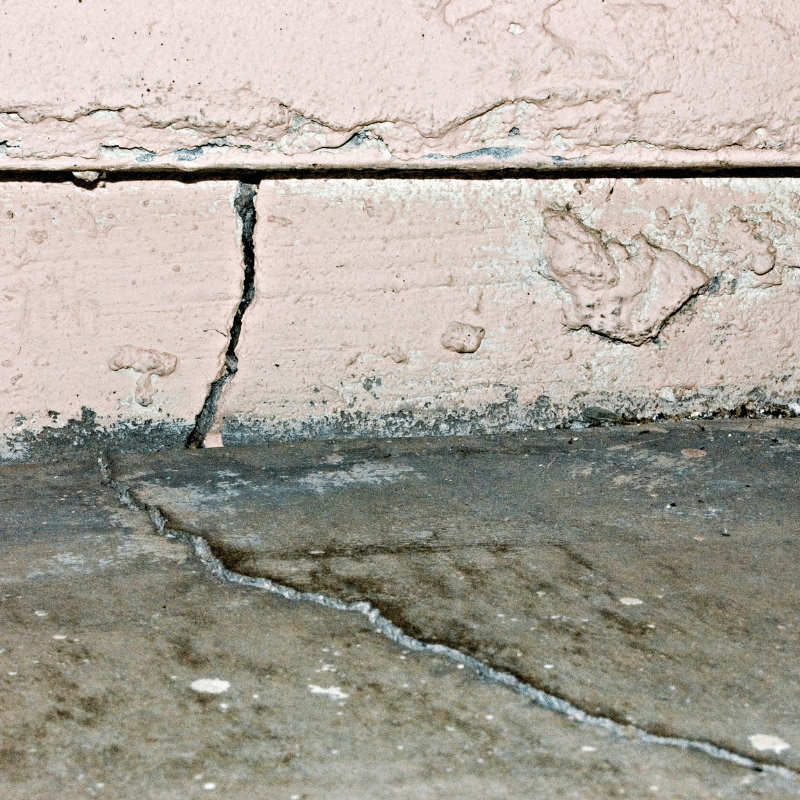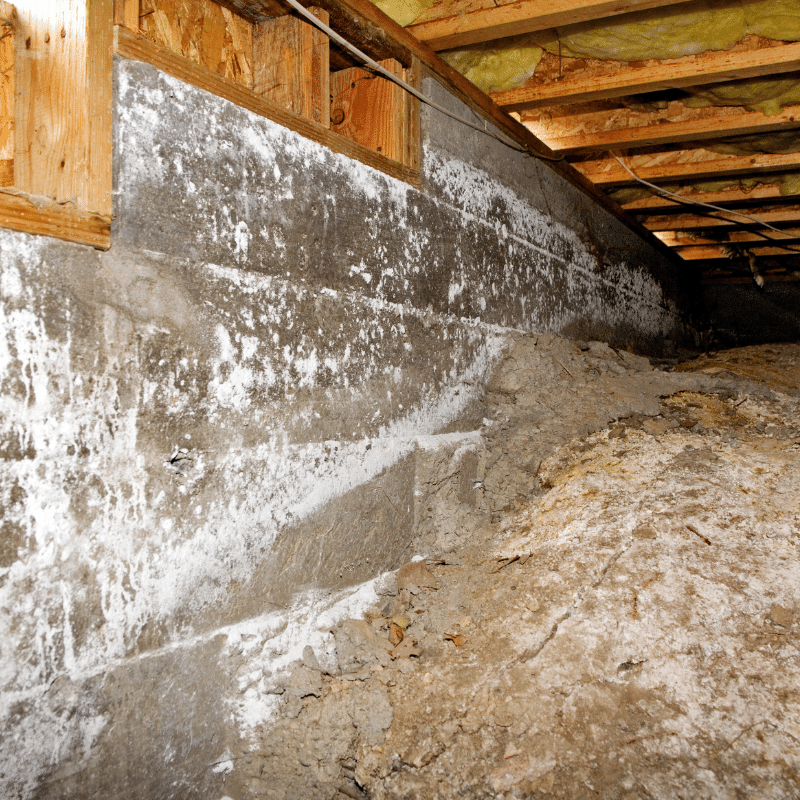Your home’s foundation is the most crucial part of your home’s structure as it supports every other part of your home, such as your roof, walls, doors, windows, and more. If your home’s foundation is sinking or damaged, it can be inhabitable and unsafe.
All homes settle into the ground over time, particularly within the first 30 years post construction. However, noticing loud, continuous settling noises can indicate serious problems with the construction and foundation of your home.
Why Is My Home’s Foundation Damaged?
There are many reasons why your home’s foundation could deteriorate. Common causes include climate, poor soil compaction, plumbing leaks, and insufficient foundation drainage.
- Rainwater and floods: If your home lacks proper foundation drainage systems, rainwater and floods can cause serious problems. Flooding can lead to foundation heaving and damaged crawl spaces.
- Large tree roots: Overgrown, large tree roots can creep underneath your home’s foundation, cracking the slab and lifting the foundation in the process.
- Soil and climate: When temperatures rise, the earth shrinks. In contrast, cold weather can cause soil to increase in size, putting pressure on your home’s foundation. Both hot and cold weather extremes can damage the foundation or cause the structure to become unstable.
- Plumbing leaks: Water leaks can lead to cracked concrete slab foundations.
- Poor soil compaction: If the soil underneath your home’s foundation wasn’t adequately prepped during your home’s construction, your foundation might sink under the weight of your home.
Signs Your Foundation Is Sinking

Foundation Cracks
When your foundation sinks, it puts pressure on the concrete, often forming cracks. Exterior cracks usually form close to the base of the home or inside walls.
Cracks also commonly form around doors and windows when your home is sinking.
In short, if you notice existing vertical cracks enlarging over time, your home’s foundation is likely sinking. Immediately call a foundation repair expert if you notice any cracks, whether they are small cracks, hairline cracks, or large cracks.
Bouncing Floors
Your home’s floor should not feel bouncy, soft, or spongy. If the floorboards feel spongy, this is a good indication that the structural floor beams of your home have been damaged over time. Termites are a common cause of this type of damage, but it can be caused by water damage in the crawl space, poor structural design, and foundation settlement.
Windows or Doors Sticking
Doorframes and windows occasionally stick. However, if you notice all of your doors or windows sticking when you open and close them, this is a warning sign of foundation damage.
Windows and doors sticking are common symptoms of foundation issues because as the house’s foundation sinks and sags, the house is not square and even any longer. The window frame stays the same size, but the sill moves, making it difficult or impossible to open the window smoothly.
You may also notice the expansion of caulk around windows and doors. If your house moves, it can pull the flexible caulk, stretching it and causing an eyesore.
Another area you’ll want to examine is your garage door. As your home experiences sagging floors or structural damage, the garage door may develop a small gap between the door and the floor as the home changes shape.
Uneven Floors
Uneven floors will be most noticeable in rooms with hard floors, such as kitchens, hallways, or bathrooms. The floor underneath typically develops a slope because your home’s foundation usually sinks into the ground unevenly.
If your home’s foundation has sunk significantly, your tile or wood floor may even develop cracks from the pressure on them by the foundation settling. Cracks are a huge warning sign of structural problems and should be immediately examined by a professional.
Breaking Walls
Are your walls bowing outward or inward? This is usually a very noticeable sign and occurs when your home’s foundation settles, straining your home’s ceilings and foundation walls. The ceilings and walls may develop cracks, bow, or break entirely.
Wood trim on walls, cabinets, or other built-in pullings can also suffer as the settling foundation moves walls, pushing trim off their secured wall spot. You may notice gaps between countertops, tilework, and other appliances from where they meet the wall.
If breaking walls and wall cracks are not immediately addressed, your home will be susceptible to pests, insects, and water damage, which can cause even more damage.
Drainage Problems
Drains require regular maintenance to run optimally. Home foundation issues do not cause most drainage issues. However, it may be a foundation problem if all your drains are experiencing issues, even after you’ve unclogged them.
Call a plumbing professional immediately to examine your main sewer lines and pipes. Leaks or clogged main sewer drains may cause an imbalance in the soil around and under your home, potentially causing foundation problems.
Damp Crawl Spaces
If your crawl space is humid, this is a strong warning sign that you either have home foundation problems or will soon.
Puddles of water in your crawl space alone won’t cause home foundation problems, but they can attract pests. However, the water vapor and moisture in the air can rot your home’s foundation, cause energy loss, and exacerbate mold growth.

Closing Thoughts
Both new and old homes can experience foundation problems for a huge variety of reasons, including excess moisture, structural design problems, and more.
No homeowner wants to worry about their home’s flooring buckling under them or their basement walls breaking from the pressure of the foundation sinking. If you notice any signs of foundation problems, immediately contact a foundation repair company for a free inspection to assess your home for foundation damages. Don’t forget to check your home warranty to see if any of the damages found are covered under the warranty.













